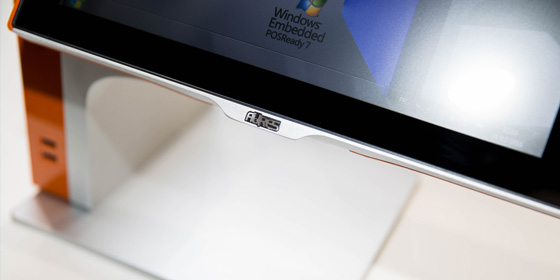By Jason SOUTHERN – AURES UK Sales Manager
Across consumer-facing industries, retail, hospitality and leisure, there is understandable concern about the impact a digital-fuelled stay-at-home culture is having on traditional modes of doing business.
Bricks-and-mortar retailers have come under intense pressure from eCommerce, with the decline of the high street widely blamed on the rapid rise of Amazon and others. The restaurant sector has similarly had to adapt fast to embrace the enhanced home delivery offers that have emerged with the likes of JustEat, Deliveroo and Uber Eat.
Predating all of these, the leisure sector has fought a decades-long battle against the convenience of television, video and DVD, live sport and film subscription services, and the ready availability of entertainment on a multitude of devices in general.
Yet, just when you would have thought that Netflix and Prime Video and all the other on-demand internet services had hammered another nail in the coffin of people leaving their homes for the sake of entertainment, it appears that just the opposite is happening. People are going out and spending more on leisure than ever – 1.5 times what they now spend on retail, according to Deloitte.
That is forcing analysts to reconsider the relationship between leisure, retail and indeed hospitality. Mixed use developments combining shops, restaurants, cafes, bars and places to play and be entertained are of course nothing new. But the typical design and layout of these destinations almost always reveals an important underlying assumption – that retail is the main draw, and leisure and hospitality destinations are the added value sweeteners on top.
But now that assumption is under serious challenge. If people are spending more of their money on leisure, then does is not follow that leisure destinations should be the key attractions at mixed use and integrated developments? That opens up questions about what sort of leisure destinations could fulfil this role. And that in turn is leading to discussions about the role cinema could play, and how we might see cinema evolve accordingly.
Fusion Cinema
In The Future of Leisure report, Legal & General and The Future Laboratory set out a vision for what they call Fusion Cinema. Their definition starts out by describing “a vibrant hybrid of traditional screens and heightened hospitality,” a nod to the growing trend for cinemas to offer fully licensed bars, quality dining options, in-seat service and more. But the concept of Fusion Cinema goes beyond being able to get good food and drink when you watch a film. It is about reimagining cinema as a social hub, a focal point that combines attractive spaces, hi-tech facilities and a range of activities beyond film. The report refers to examples of what it calls “Civic Cinema”, with theatres like the Kino in Amsterdam offering co-worker spaces alongside its other amenities, or the Watershed in Bristol providing studios for artists, creatives and tech companies to use.
The report references statistics from CBRE which highlight that 33 new multiplex cinemas are scheduled to be built in the coming years in the UK, half of them in shopping centres. If L&G’s analysis is right, and if leisure will be more of a draw for people to leave their homes (and spend money) than retail in coming years, then the people developing these complexes will surely be looking at the use of cinema as an anchor rather than just another amenity, a multiplay, multi-activity, multi-experiential hub.
How might such cinemas operate? The Future of Leisure report talks a lot about the use of space, about designing cinema complexes so places to eat, places to socialise, places to play and of course places to watch all flow seamlessly into one another. It also talks about technology, and the roles the likes of AI, AR and VR might play in creating personalised, digitally enhanced journeys for every cinema-goer.
EPOS, too, will have a role to play. We are already seeing how cinema operators are extending the use of self-service kiosks beyond ticketing to integrate food and drink orders, the use of Mobile POS to support in-seat service. In the multiplay destination cinemas imagined by L&G, this will be extended further still – multiple touchpoints to buy, order and book, multiple options, maximum convenience. That will require multiple EPOS formats, self-service, mobile and fixed-point terminals, all integrated across ticket and concession sales, all working as a single solution.
AURES will be a key sponsor at ECM 2019 in Istanbul from November 19th to 21st. If you would like to arrange to meet with a member of the team, please email: marketing-uk@aures.com.




